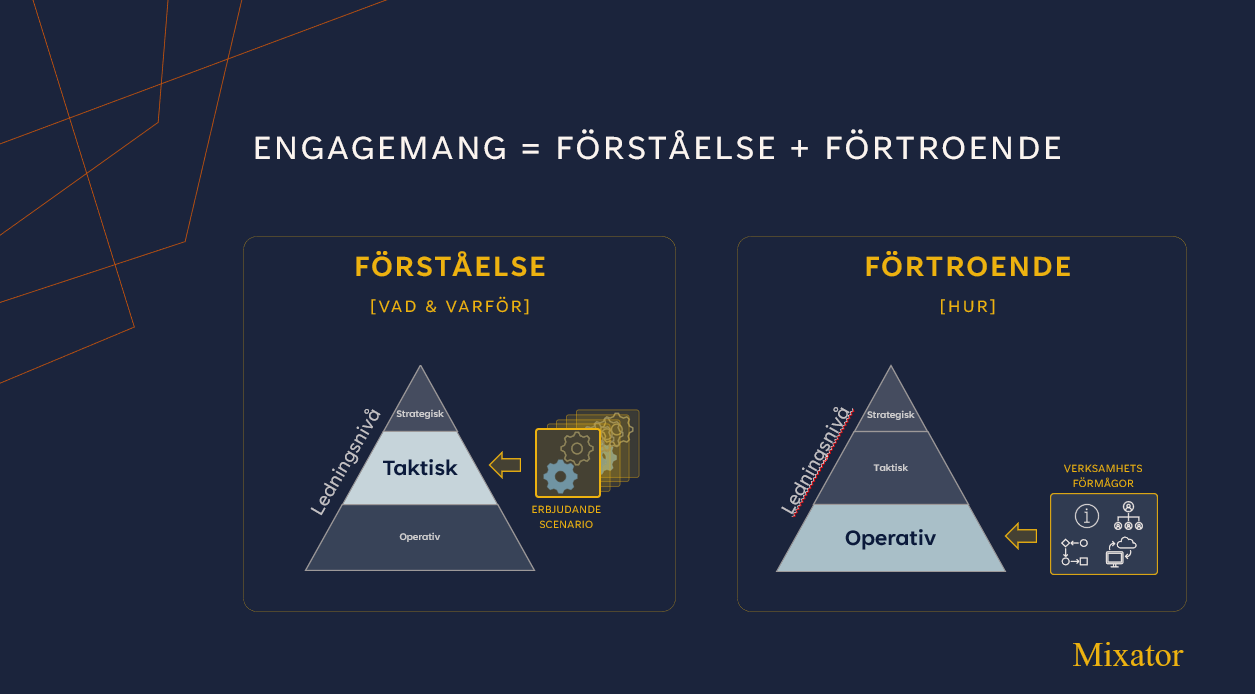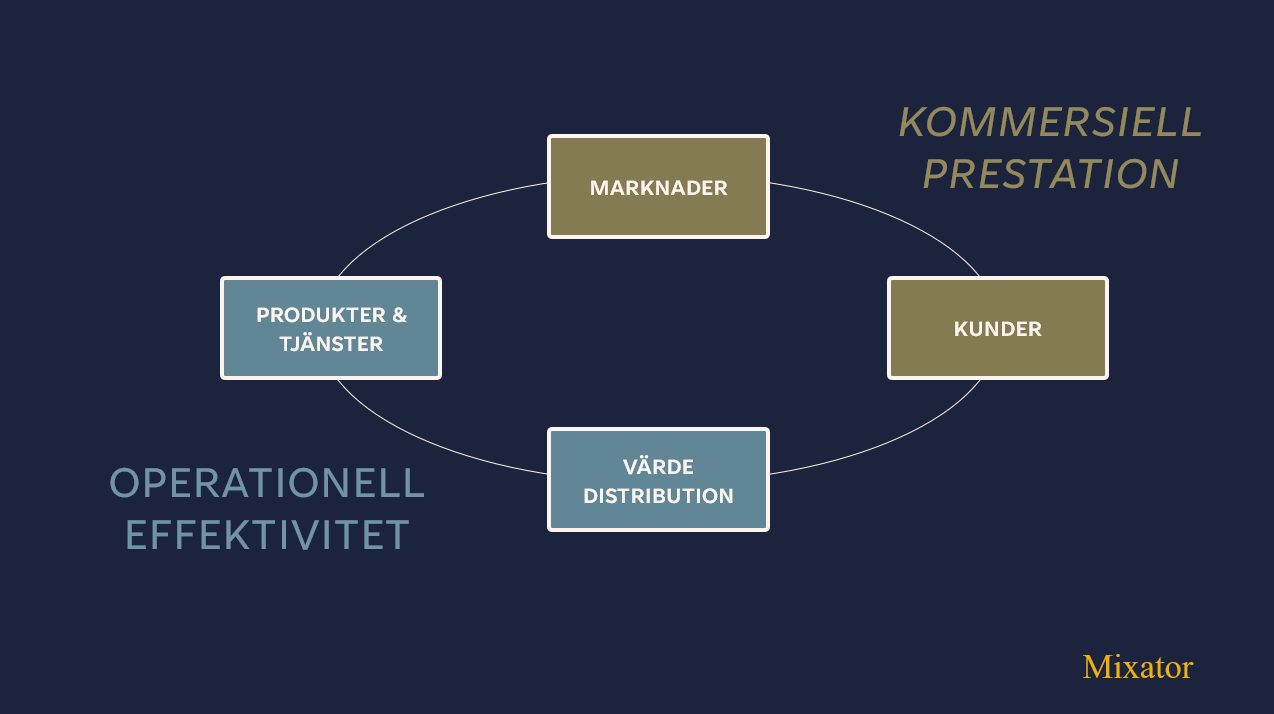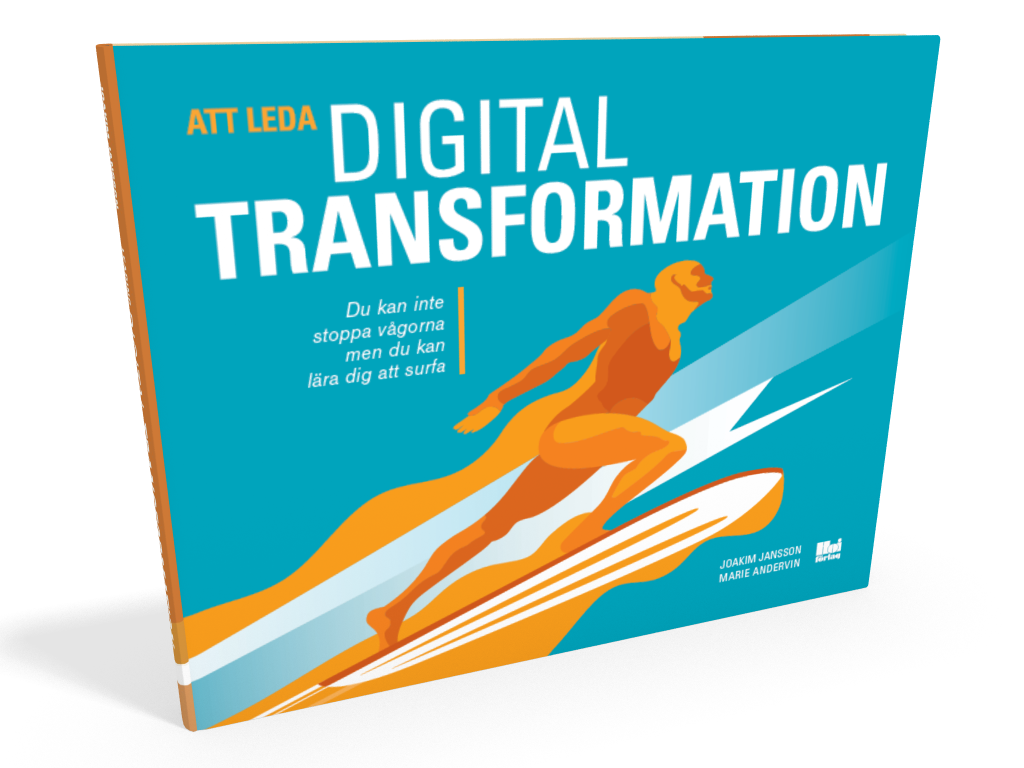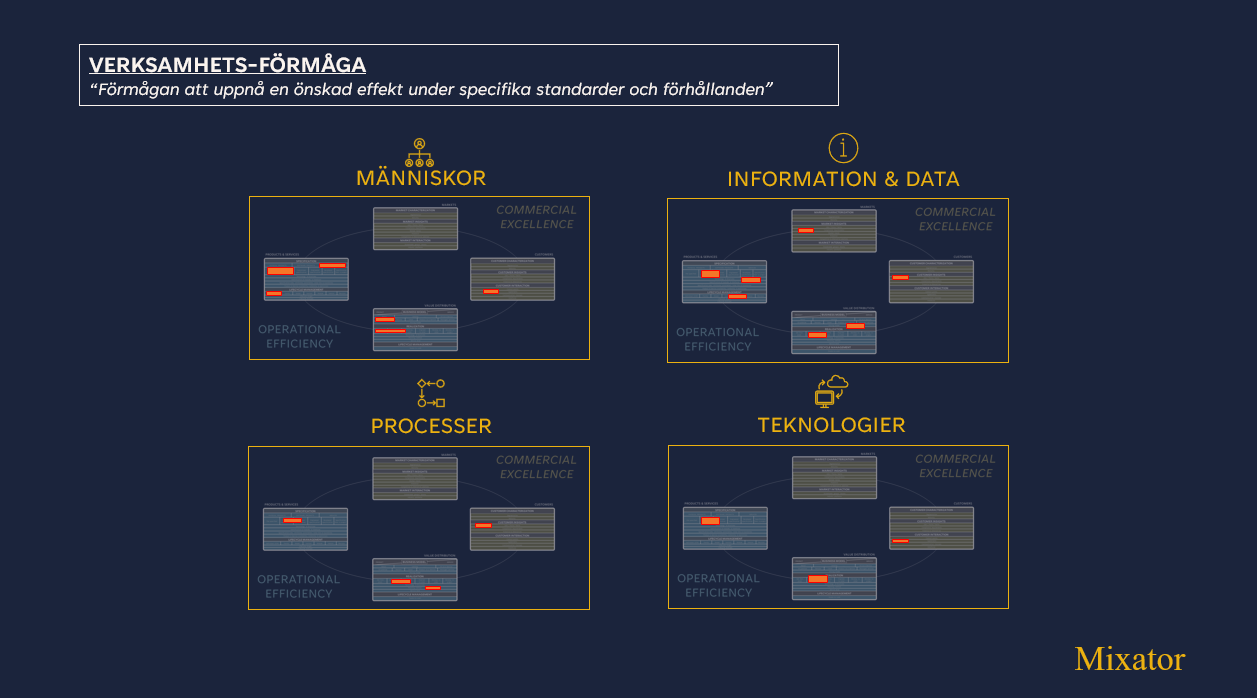How we do it
Mixator works primarily with assignments in change management linked to streamlining operations with the help of digital transformation. By describing a business in digital terms, an opportunity is created to automate business processes and develop new products, services or business models. Some key concepts that often recur in our clients' business transformations are:
-
- ERP: Enterprise Resource Planning
- CPQ: Configure - Price - Quote
- PLM: Product Lifecycle Management
Together with our clients, we build digital capabilities that lead to both commercial performance and operational efficiency in how an organization's total customer offering is made available to the market.
CHANGE MANAGEMENT
Mixator has extensive experience in change management in complex organizations and can quickly understand the requirements, opportunities and expectations within an organization. Based on our own examples, approaches from established change management methods (ADKAR, Kotter, etc.) can therefore be adapted at an appropriate level to each assignment. An important component of any change is to create engagement within the team.
ENGAGEMENT = UNDERSTANDING + CONFIDENCE
Understanding of what is to be changed and what the change will lead to in a wider context.
Confidence that the group has the mandate to implement the change and that planned activities will lead to the desired outcome.

OFFERING PORTFOLIO MANAGEMENT

Based on established models and tools (Value proposition, Business Model Canvas, etc.), Mixator has developed a method to break down complex business models into manageable scenarios. The aim is to create a holistic view of change needs throughout the value chain and quantify the impact of the different parts. The aim is to visualize complex situations and to create engagement in project teams.
We support our clients with the detailing of strategic plans, tactical advice and operational implementation on how to make the value of the business' products and services available to its customers, with optimized profitability.
DIGITAL TRANSFORMATION
Digital transformation refers to all the adjustments a business makes to be competitive in a digitalized world.
One direct consequence, which often receives a lot of attention, is changes to the IT solutions used in the business. To succeed in business terms, experience shows that it is equally important to also act on how digital transformation affects the business's products, services and the behaviors that must be changed in the transformation.

BUSINESS CAPABILITIES

Change often means that ambiguities in the organization float to the surface. Different parts of the organization turn out to have their own business concepts, IT solutions, culture, workflows, etc. and after the change, all parts are expected to collaborate in a common system with common value flows.
A structured approach to achieve this at a reasonable level is the development of business capabilities, i.e. the ability to achieve a desired effect under specific standards and conditions:
- PEOPLE: Competencies, culture, behaviors
- INFO & DATA: Operational concepts, data, value lists
- PROCESSES: Business processes, workflows
- TECHNOLOGIES: Design, administration, communication
